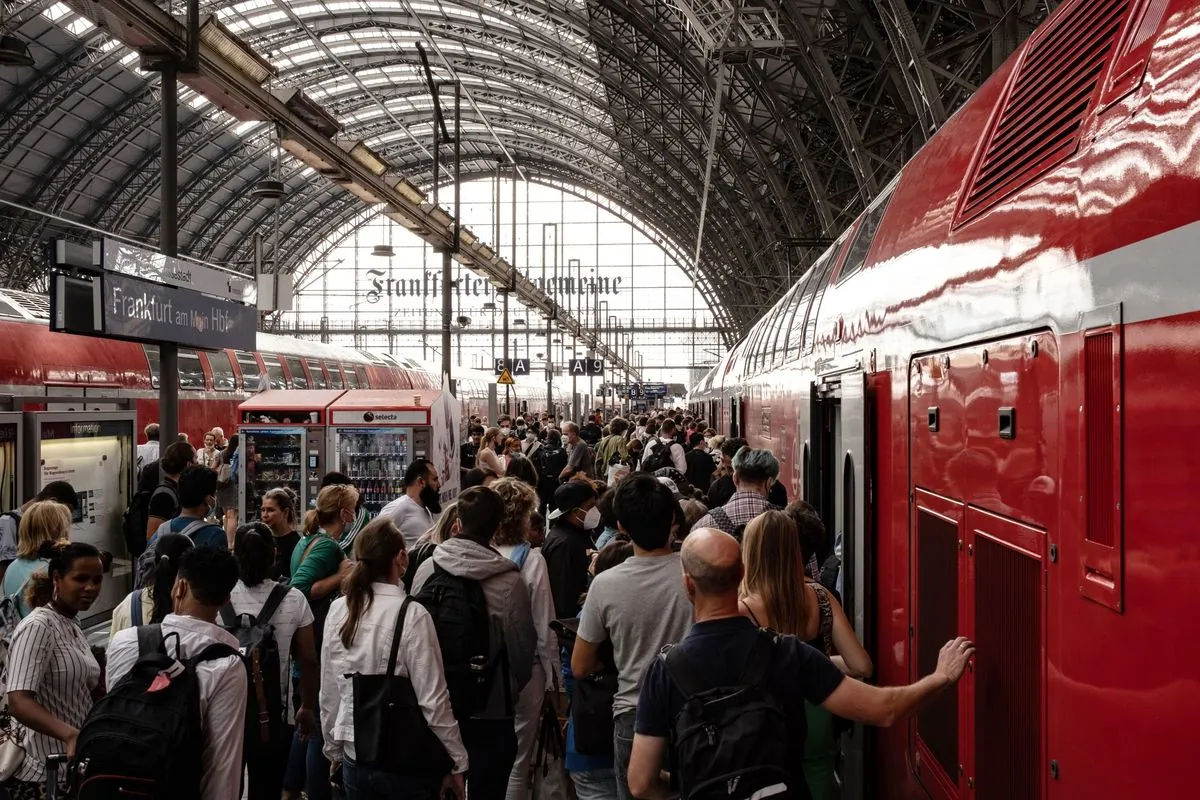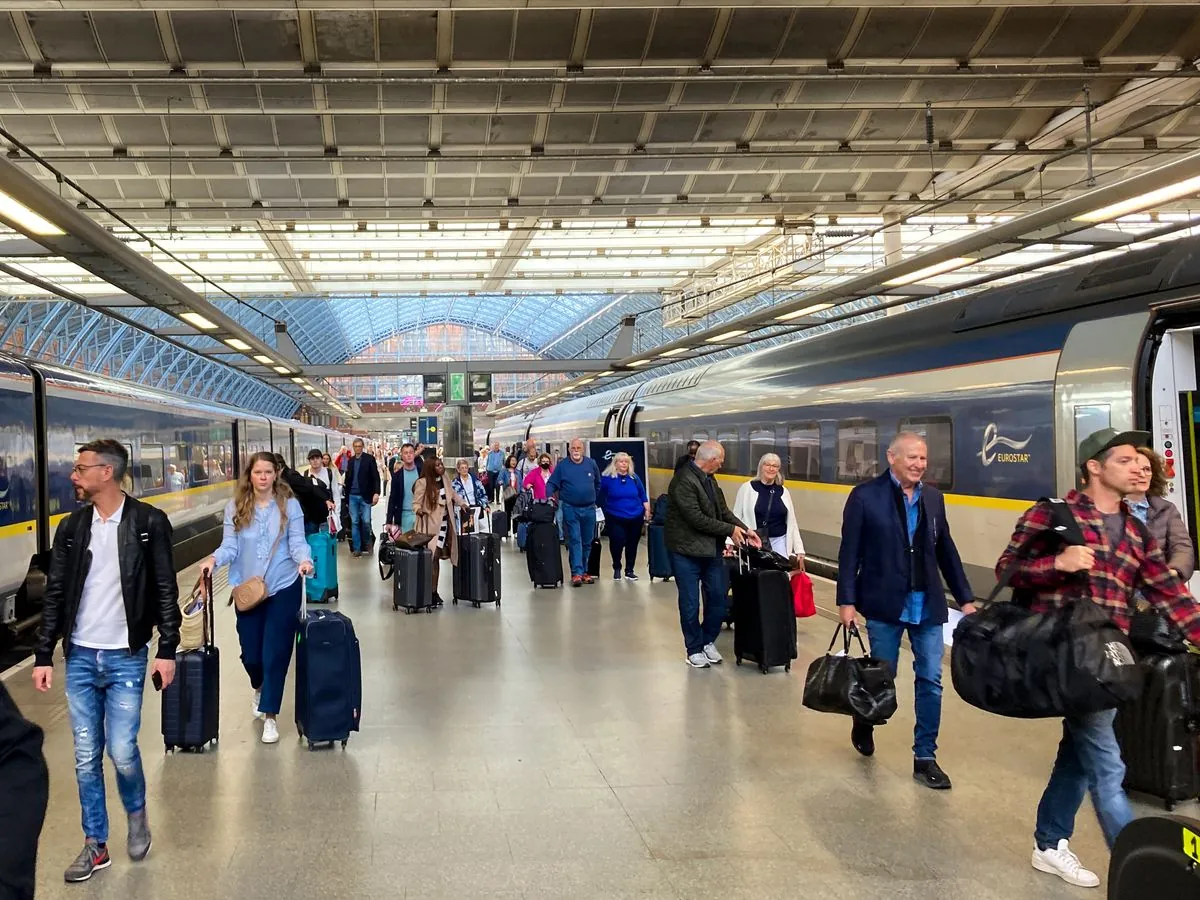Major Rail Disruptions Hit Germany Due to Technical Issues
Deutsche Bahn, Germany's national rail operator, faced widespread service interruptions due to a technical malfunction. The issue particularly affected the Frankfurt area, impacting both local and long-distance trains.

On September 7, 2024, Deutsche Bahn, Germany's national rail operator and Europe's largest railway company, encountered significant service disruptions across parts of the country. The company, which manages approximately 24,000 passenger trains daily and serves around 7.3 million travelers, reported a "technical disturbance" that forced numerous trains to remain stationary at various stations.
The issue particularly affected the Frankfurt region, a crucial transportation hub in southwestern Germany. Frankfurt, the country's fifth-largest city and a major financial center, saw both long-distance and local train services come to a complete halt. This disruption significantly impacted key transport links, including connections from Frankfurt Airport, the busiest in Germany and fourth busiest in Europe, as well as Frankfurt Main Station, one of the nation's busiest railway hubs.

According to reports from Germany's ARD public television, the root cause of the problem was traced to a malfunction in the satellite radio communications system. This system plays a vital role in providing real-time communication and positioning data for trains across Germany's extensive railway network, which spans over 33,000 kilometers.
Deutsche Bahn, founded in 1994 following the merger of Deutsche Bundesbahn and Deutsche Reichsbahn, promptly addressed the situation on its website, stating, "We are working on a fix at high speed." The company, which operates in more than 130 countries and employs over 300,000 people worldwide, is known for its commitment to efficient and reliable service.
This incident highlights the complexity and vulnerability of modern railway systems, even in a country with one of the densest rail networks in Europe. It also underscores the critical importance of robust communication infrastructure in maintaining smooth operations across extensive transportation networks.
As Deutsche Bahn works towards its goal of becoming climate-neutral by 2040, incidents like these serve as reminders of the challenges faced in balancing technological advancements with system reliability. The company's flagship high-speed train service, the ICE (Intercity Express), along with its other services, play a crucial role in Germany's transportation landscape and its connection to the broader European network.
While the disruption caused inconvenience for many travelers, it also demonstrated the far-reaching impact of Frankfurt as a key transportation node. Home to the European Central Bank and a major international airport, the city's significance extends beyond national borders, making any disruption to its transport links a matter of widespread concern.
As Deutsche Bahn continues to address this technical issue, the incident serves as a reminder of the ongoing need for investment in and maintenance of critical infrastructure to ensure the reliability and efficiency of public transportation systems.


































